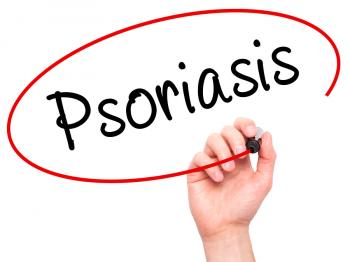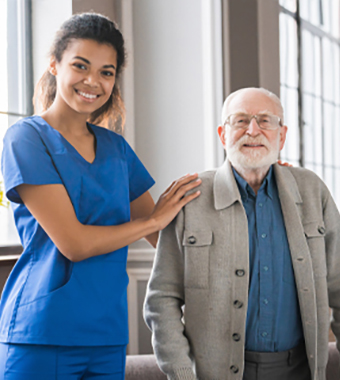What Is Psoriasis and How Can You Help Your Senior to Cope with It?
August 11, 2022

Millions of people across the country find themselves dealing with psoriasis flares periodically. August is Psoriasis Action Month, which was started as a way to educate people about psoriasis and how it can affect everyone, no matter how old they are. If your elderly family member has found herself battling psoriasis, she needs to know more about what the condition is, how it impacts her life, and what she can do on a regular basis to cope with this skin illness.
Types of Psoriasis
There are several different types of psoriasis that might affect your senior, including:
-
Nail psoriasis
-
Guttate psoriasis
-
Plaque psoriasis
-
Inverse psoriasis
-
Psoriatic arthritis
-
Pustular psoriasis
-
Erythrodermic psoriasis
Your senior’s doctor can let her know exactly what type of psoriasis she is facing when she’s diagnosed and help her to put a full care plan together. Different types of psoriasis, like psoriatic arthritis, can affect multiple parts of your senior’s body.
Symptoms of Psoriasis
Symptoms of psoriasis typically include a rash of some sort. These rashes can vary from one person to another and sometimes look like small patches of flaking skin or major rashes all over the body. Some rashes can be so severe that they may become cracked, even causing bleeding. Psoriasis often cycles, meaning that the rashes subside for varying periods of time and then flare up again.
Psoriasis Triggers and Complications
One of the biggest reasons that psoriasis can flare up is that something has triggered it. Psoriasis is considered an immune system illness because the immune system sends out white blood cells to attack an “infection” and those cells target healthy skin instead. Some common triggers can include:
-
Weather
-
Skin injuries
-
Smoking or alcohol
-
Medications
-
Infections
Psoriasis can lead to other conditions and complications, like eye conditions, post-flare temporary skin color changes, diabetes, high blood pressure, and more.
Treating Psoriasis
Treating psoriasis involves different protocols depending on the type of psoriasis and the severity. Treatment methods can range from topical treatments to oral medications. Light therapy is another possible option. If your elderly family member finds it difficult to treat psoriasis on her own, personal care at home can help. Caregivers can remind your senior to take medications when needed and can help her to put on topical creams and treat her skin carefully.
Making Lifestyle Changes
Taking gentle, lukewarm baths instead of hot showers is often recommended for people with psoriasis. This can be a lot easier with help from personal care at home. Your elderly family member may need to determine what her personal triggers are so that she can better avoid them. Spending time in sunlight for short periods of time, keeping cool, and keeping skin moist and protected can also be helpful.
If you or your loved one is looking for Personal Care at Home in Los Gatos, CA, please call Familiar Surroundings Home Care.
Santa Clara County: (408) 979-9990
San Mateo County: (650) 353-9777
Santa Cruz County: (831) 480-3990


